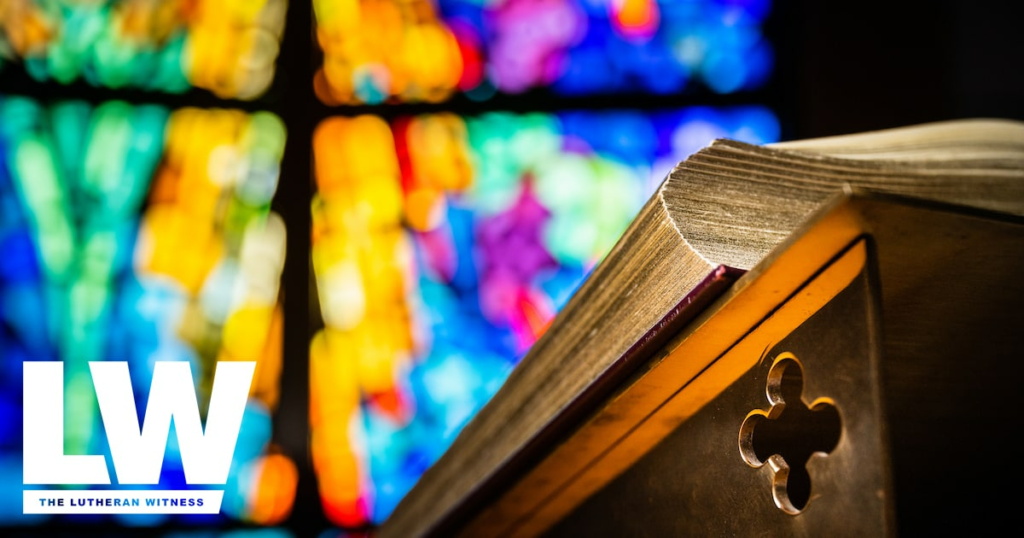by Rev. Dr. Robert Rosin
“These are the times that try men’s souls,” intoned Tom Paine in Common Sense (1776), appealing for action, for an American Revolution. We’ve heard the line repeated these days by pundits eyeing our own troubles, but in all honesty, the parallel is a stretch. Stop to think what the colonists were challenged to do, and our own troubles, though vivid, pale in comparison. Still, it’s no sin to look for heroes and draw inspiration for the task at hand.
Paine’s focus was political, though economics lay close by. Ours is economics, though politics is bound with that. But while headlines point to problems with debts and deficits, dollars and euros, GNPs and interest rates, another challenge cruises beneath the radar, a kind of spiritual or theological challenge ready to pounce. It’s an existential challenge that both goes to the heart of things and troubles the heart. Yes, we’ve read Matthew 10, that two sparrows are sold for a farthing, but we wonder if it’s still so that not one will fall without the Father knowing. More: What will the Father do about it when that happens? What happens when I’m the one to fall?
Faced with challenges, it is natural to look around for heroes, even while trying to sort things out within. History offers heroes in all walks of life, including some in the spiritual or theological realm. October provides images of the Rev. Dr. Martin Luther, the Ninety-five Theses, the Castle Church door and more. Luther spoke of “outsized men” that God raises up to get things done, though he was not pointing to himself. Still, it is hard not to stand in awe given what erupted from this obscure Augustinian monk posted in “Academic Siberia,” as one historian called little Wittenberg. Now there’s a hero to admire, even emulate.
And this October offers a double dose with the Rev. C. F. W. Walther’s 200th birthday on Oct. 25. While no “Here I stand,” Diet of Worms moment dominates Walther’s biography, a young German pastor coming with three boatloads of pious Christians to start over in a new land is no small act of courage. They cared enough for their Lutheran roots to move half a world away, only then to figure out how to transplant those in a new context, praying God would bless their witness. Challenges came early: With the bishop (Martin Stephan) gone, were they still church? Walther helped them sort that through, and our Synod still affirms his Church and Ministry to keep things clear. In his own way, Walther is a hero as well.
Heroes have a place in times that try men’s souls–political and economic, spiritual and theological. In tough times, we may look to heroes. And that is fine and good. Yet there is a danger of pining for better times: if only we could return to the days of _____. (You fill in the blank: Luther, Walther or . . . )
This is the golden-age myth. Historians see it all the time and can quickly put an end to this kind of talk with some honest history. (Incidentally, that’s why Luther called historians the most useful people. Smart man, that Luther!) No building booths on the mountaintop, no freezing time. Peter, James and John learned that in no uncertain terms at the Transfiguration. No, no booth-building.
And no hero worship either. Sidney Hook, in his introduction to The Hero in History, quipped that he could just as well have called his book The Limits of the Hero in History. For while we prize heroes for their leadership, ideas, courage and honesty, in the end, there is no staying on the mountaintop and no dwelling in times past. Life moves on, and we have to go back down to the plain, to get on with the trials–the opportunities–at hand.
Indeed, heroes have a place. But as Luther, Walther and any such hero worth his or her salt would quickly point out, it was not they but Christ in them. As hymn writer Johann Herrnschmidt put it, “Trust not in princes, they are but mortal.” That’s good advice for princes of any sort, be they political or princes of the church. Instead, Herrnschmidt concludes, “Trust ye in Christ, our God and Lord.”
We stand on the shoulders of giants, Isaac Newton wrote, that is, on the example of heroes. Problems still swirl, to be sure, but from that lofty vantage point, after looking down to say thanks to the heroes, we look beyond to the One who promises faithfulness. “All power is given me on heaven and earth,” said Jesus in Matthew 28, promising that whatever may come, be they good times or times that try our souls, nothing lies above and beyond His reach, outside His control, too far for His grace and love to embrace us.
—
> To order a 2011 film production of Walther’s life, go to www.waltherfilm.com.
> Walther served as president of both LCMS seminaries: Concordia Seminary, St. Louis, and Concordia Theological Seminary, Fort Wayne.
About the Author: The Rev. Dr. Robert Rosin is professor at Concordia Seminary, St. Louis, and coordinator of theological education for LCMS World Mission in Eurasia.
October 2011






